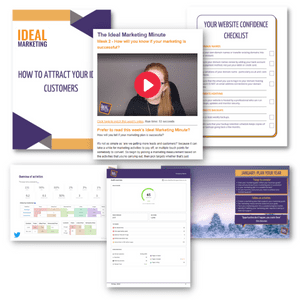 If you work with an SEO agency, are new to the world of digital marketing or simply want to boost your website’s search results you will have encountered the term ‘meta description’.
If you work with an SEO agency, are new to the world of digital marketing or simply want to boost your website’s search results you will have encountered the term ‘meta description’.
We’ve answered the most common queries about meta descriptions to help get you started on the path to optimised search results, so let’s dive in…
What is a meta description?
Simply put, a meta description is a snippet of text that gives a concise overview of what a page or website will contain. Think of it as a short blurb for a web page – an opportunity to entice a reader to click through to your web page over the other options on the search results page.
It will appear under the title and URL of your web page in search results and tends to be a couple to a few lines long.

Does it affect SEO?
Yes, indirectly. Whilst Google has explained that meta descriptions don’t feature in the list of ranking factors they use for search results, they it do es still have an impact.
Google favours websites that give users what they are looking for and it does this through factors like bounce rate (the number of visitors who navigate away from the site after viewing only one page) and the amount of time a user spends on a page. Meta descriptions can have a big impact on these factors so they play a key role in not only getting visitors to your website, but also ensuring they stay there.
A meta description needs to be enticing, but it also needs to be a great representation of what’s on the page. If not, a user may think ‘hmm this doesn’t really answer the question I’m asking or provide the information I need’ and return to the search results (increasing your bounce rate and telling Google your page may not be appropriate for the term.)
How long should it be?
At the time of of writing this article, the best length for a meta description in 2018 sits at around 155–160 characters. However, it’s It is worth noting though that Google tends to experiment with different lengths sporadically. There are some great tools out there to help you with the length of a meta description and some even provide a mock-up of what your search result will look like in action. If you use WordPpress, then an SEO optimisation plugin like Yoast may even do this for you in page!
How to write a great meta description
Include keywords
Going back to our example meta description earlier, you can see that some words have shown up in bold. As a general rule, Google will bold keywords in your meta description that match the kind of terms the user has searched for so it’s the perfect way to draw a little more attention to your result.

Write for humans
Although using a few keywords is fantastic, and likely unavoidable, stuffing a meta description full of keywords is not the way to go. Meta descriptions are really intended for readers, so writing in a flowing manner with humans in mind is a much more effective approach.
Make it unique and compelling
As a general rule, each unique page on your website should have its own dedicated meta description (category, tag or paginated pages tend not to be a problem). Think of each meta description as an advert for that specific page. You may want to include action-orientated language, for example ‘visit’, ‘learn’ or ‘discover’ to encourage a reader to take the action of visiting your page.
Advice on digital marketing for your company
To find out more about how we can help you with SEO or any other aspect of your marketing, call us on 01858 374 170 or email info@idealmarketingcompany.com




